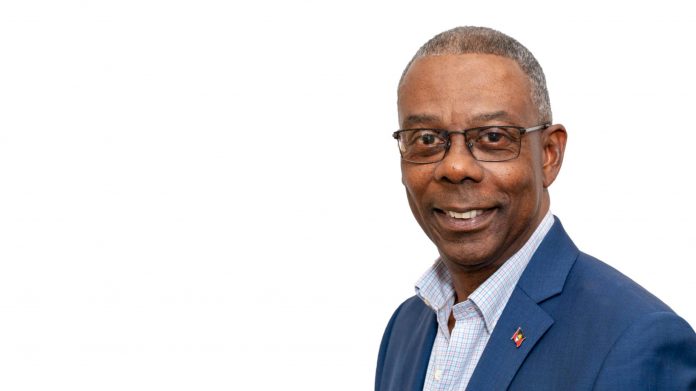
By Carlena Knight
Leader of the United Progressive Party (UPP) Harold Lovell is chastising the Gaston Browne-led administration over the manner in which it has handled the long-standing Barbuda land rights saga.
Lovell told Tuesday’s Observer AM show that the government’s “failure of statesmanship” fuelled the war between the central government and the Barbuda Council, forcing the matter into a legal fight that went all the way to the Privy Council.
Attorney General Steadroy ‘Cutie’ Benjamin and development company Paradise Found LLC were named as the defendants when the case was first filed in 2016 by two claimants – Barbuda MP Trevor Walker and Barbuda People’s Movement (BPM) founding member Mackenzie Frank.
Lovell claimed the Antigua and Barbuda Labour Party-led government had failed the Barbudan people and failed in their role to ensure the matter was resolved amicably, something he asserted would never have reached such acrimony had his party been in office.
“We need a government which will recognise that we, the people in Antigua and Barbuda, must find a way to live together and that means there has to be compromise on both sides,” Lovell said.
“What we are witnessing right now, even though it may be played out in the legal courts, is really a failure of statesmanship.
“You have a small island like Antigua and Barbuda and you have a government that is unable to find the necessary words, the necessary actions, to be able to sit down in a respectful way and come to some sort of agreement.
“I am saying that, to me, is something that could be achieved in the first 60 days of any UPP administration,” he added.
Lovell also responded to recent comments made by the AG surrounding the ethical aspect of the land wrangle.
Benjamin had said the issue had nothing to do with moral rights but legal rights, saying they are “two different things”. He also accused Lovell of being “deceptive” when he implied a reversal of the situation was possible if there was a change in government.
“He is an officer of the court and he knows very well that that cannot be done,” Benjamin claimed.
“This type of change, in other words separating Antigua from Barbuda, can only be done by a referendum – which would mean two thirds support in the Senate, two thirds support in the House and two thirds support of all the people that vote at that referendum.
“So, I am asking Antiguans and Barbudans, please do not be fooled by that rhetoric,” the AG said.
But Lovell clarified that the moral rights of Barbudans cannot and should not be ignored.
He said in the past there have been instances where the moral rights of individuals have helped to influence and change legislation, citing slavery as an example.
Nevertheless, Lovell said he did not want his comments to be made into a political war of words as the focus should be on resolving the matter promptly.
“We cannot continue this adversarial relationship with Barbuda,” Lovell said.
“It requires a statesmanship approach, whereby we sit with the people of Barbuda and we find a way forward.
“We must find a sensible sober discussion so that we can come to a conclusion whereby we respect the wishes of the people of Barbuda so that we don’t have this continuing war.
“It’s no good for anybody and the bigger question here is, what is required? Where do we meet halfway so that we can go forward as Antigua and Barbuda, but that is not being done,” he added.
The Barbuda lands case was mounted following the passage of the Paradise Found Act of 2015 which nullified critical sections of the Barbuda Land Act.
The BPM members contend that Barbuda’s land is owned in common by all Barbudans, and that the Paradise Found Act was thus unconstitutional and paved the way for land to be leased to foreign developers without the express approval of the Barbudan people.
The government lost an earlier application to have the case struck out by a lower court, but the matter was subsequently sent to the Eastern Caribbean Supreme Court which sided with the government.
Walker and Frank then took the fight to the country’s final appellate court, the London-based Privy Council, which on June 13 upheld the Supreme Court ruling.
